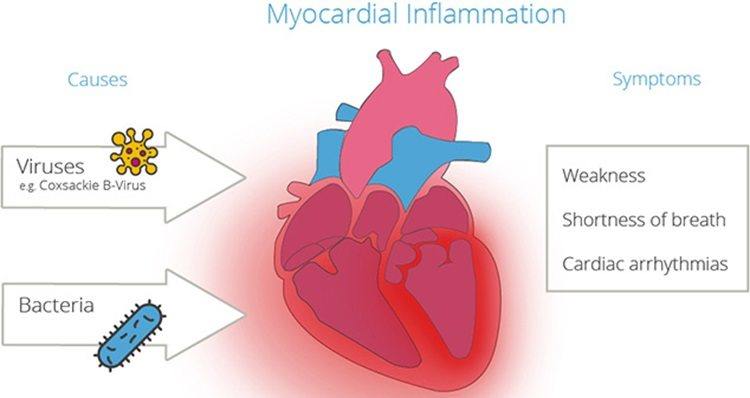Myocarditis, an inflammation of the heart muscle, has garnered significant attention in relation to COVID-19 vaccinations, particularly mRNA vaccines like Pfizer-BioNTech (BNT162b2) and Moderna (mRNA-1273). The concern arises from observed cases of myocarditis following vaccination, especially among younger males. This article aims to provide a detailed overview of the risk of myocarditis associated with COVID-19 booster doses, highlighting specific infection probabilities, demographic factors, and the broader context of vaccine safety.
What Is Myocarditis?
Myocarditis is characterized by inflammation of the myocardium, the middle layer of the heart wall. It can result from various causes, including viral infections, autoimmune diseases, and certain medications. Symptoms may include chest pain, fatigue, and arrhythmias. In severe cases, myocarditis can lead to long-term heart damage or even death.
Understanding its relationship with COVID-19 vaccines is crucial for informed public health decisions.
Myocarditis And COVID-19 Vaccines
Research has indicated a link between mRNA COVID-19 vaccines and myocarditis, particularly after the second dose. The risk appears to be higher among males under 30 years old. Studies show that while myocarditis can occur after vaccination, it is generally mild and resolves with appropriate treatment.
Risk Assessment After Booster Doses
Incidence Rates:
According to a study conducted in Israel, the risk of developing myocarditis after a third booster dose of the Pfizer vaccine was approximately 1 in 15,000 for males aged 16-19 years. This rate is significantly lower than the risk associated with COVID-19 infection itself.
Another study indicated that the risk of myocarditis was lower following a booster dose compared to the second dose.
SEE ALSO: Does Myocarditis Cause Back Pain?
Demographic Factors:
The highest incidence rates are observed in young males aged 16-19 years. For instance, males aged 20-24 also exhibit elevated risks but to a lesser extent.
The risk for females is notably lower than for males across all age groups.
Timing and Dosing Intervals:
Studies suggest that longer intervals between doses may reduce the risk of myocarditis. For example, administering booster doses at least 20 weeks after the second dose appears to mitigate risk.
The quantity of mRNA in booster doses is typically lower than in initial doses (e.g., 50 µg for mRNA-1273 as a booster compared to higher amounts for primary doses), which may contribute to reduced incidence rates.
Comparative Risks: Vaccine Vs. Infection
Research indicates that contracting COVID-19 poses a higher risk for myocarditis than vaccination does. For instance:
A study found that individuals infected with SARS-CoV-2 had a significantly increased risk of developing myocarditis compared to those who received mRNA vaccines.
The overall incidence of myocarditis following COVID-19 infection can be as high as 1 in 100 in certain populations.
Clinical Presentation And Outcomes
When myocarditis occurs post-vaccination, it typically presents within a week following the booster dose. Symptoms may include:
- Chest pain
- Shortness of breath
- Palpitations
Most cases are mild and resolve with treatment; patients often require only a few days of hospitalization.
Recommendations for Monitoring
Given the potential risks associated with myocarditis following vaccination, health authorities recommend:
Monitoring High-Risk Groups: Special attention should be given to young males receiving booster doses.
Public Awareness: Educating vaccine recipients about potential symptoms of myocarditis can facilitate early detection and treatment.
Conclusion
The risk of developing myocarditis following a COVID-19 booster dose is relatively low but varies significantly by age and sex. While young males face heightened risks, these must be weighed against the benefits of vaccination in preventing severe illness from COVID-19.
In summary, while myocarditis remains a concern related to mRNA vaccines, ongoing research continues to provide reassurance regarding their safety profile when considering both short-term and long-term outcomes. Public health initiatives should focus on transparent communication about risks while promoting vaccination as a critical tool in combating the pandemic.
Related topics:

